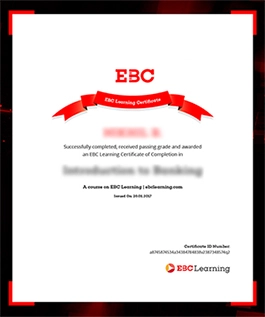Advanced Insolvency Law
Enrollment in this course is by invitation only
IBC consolidates all the laws related to insolvency in India by creating a single law. It helps to improve the confidence of banks, foreign investors, and associated companies in crisis-mitigation mechanisms.
The intensive course on IBC Practice contains the following:
- IBC essentials
- Initiating the insolvency process
- Filing by operational and financial creditors
- Insolvency resolution process
- Fast-tracks and pre-packs
- Liquidation
- Insolvency litigations and related drafting
- Cross-border insolvency
The course will take you through the various stages in the resolution process, commencing from inviting an expression of interest for the Resolution Plan to filing the Resolution Plan with the NCLT for its approval.
Why Take This Course?
- Comprehensive Understanding of IBC Essentials: Gain a thorough grounding in the fundamentals of the Insolvency and Bankruptcy Code (IBC), including its objectives, framework, and key provisions.
- Master the Insolvency Resolution Process: Learn the step-by-step process of initiating insolvency, from the filing of petitions by operational and financial creditors to the resolution process, fast-tracks, and pre-packs.
- Develop Practical Skills in Insolvency Litigation and Drafting: Acquire hands-on experience in handling insolvency litigation, including drafting necessary documents and petitions.
- Navigate Cross-Border Insolvency: Understand the complexities of cross-border insolvency and the legal provisions that govern international insolvency cases.
- Gain Insights into Liquidation Processes: Learn the liquidation procedures and how to effectively manage and execute the liquidation process under the IBC.
- Learn from Industry Experts: Benefit from the expertise and insights of seasoned professionals who have extensive experience in insolvency law and practice.
Who Should Take This Course?
- Law Students and Recent Graduates: Launch your career in corporate law with a strong foundation in insolvency law.
- Practising Lawyers and Legal Professionals: Expand your services and expertise in insolvency litigation and resolution.
- In-House Counsels: Manage insolvency issues effectively within your organisation.
- Legal Professionals Seeking Career Shifts: Transition into corporate practice or specialise as Transactional Lawyers.
- Chartered Accountants, Company Secretaries, and Cost & Work Accountants: Enhance your ability to advise clients and manage insolvency cases.
- Business Leaders and Executives: Navigate insolvency challenges and make informed decisions for your organisation.
- Prospective Entrepreneurs: Manage insolvency risks and ensure legal compliance for your business.
- Government Officials: Implement and oversee insolvency regulations more effectively.
- Academicians: Improve your teaching and research with in-depth knowledge of insolvency laws.
- Business Professionals and Advisors: Provide comprehensive advisory services by honing your legal skills in corporate affairs.
Course Structure
Engaging and Structured Videos: Learn at your own pace with our expertly crafted video lectures delivered by leading industry professionals. Whether you are exploring a new area of law or reinforcing your existing expertise, the series of short videos (around 2-3 minutes each) empower you to learn at your own pace, revisiting concepts as needed. Each video segment is thoughtfully crafted to explain the practical applications and processes related to the specific Definition, Concept, Explanation, Section, or Article being covered.
Practical Assignments and Solutions: Solidify your knowledge with practical exercises that put theory into action. Wherever required, practical assignments are explained in detail through ‘Solutions Videos’ or ‘Solutions Guide’, wherein our experts walk you through every step for solving practical legal problems either through videos or a documentary guide.
Q&A for Knowledge Mastery: Test your understanding and gain clarity through Multiple Choice Questions (MCQs) at the end of chapters. These MCQs test your comprehension and application of mind, ensuring you have the right understanding of the course material.
- Live Class: Conflict of Jurisdiction between NCLT and Civil Courts (Sat 29 Jun 2024, 06:30 PM) 🔴
- ⚑ Live Class
- ⦿ Live Class - Recording
- Live Class: Resolution Plan (Sat 6 July 2024, 06:30 PM) 🔴
- ⚑ Live Class
- ⦿ Live Class - Recording
- 1. 📕 Introduction
- 1.1 ▸ Introduction
- 𝍭 Full text of leading cases
- 2. 📕 Understanding the objectives and key terms under the IBC
- § Relevant sections
- 2.1 ▸ Insolvency and bankruptcy
- 2.2 ▸ What is a debt
- 2.3 ▸ Operational debt
- 2.4 ▸ Financial debt
- 2.5 ▸ Creditor
- 2.6 ▸ Financial creditor and operational creditor
- 𝍭 Full text of leading cases
- ☆ Feedback
- 3. 📕 Difference between financial debt and operational debt
- 3.1 ▸ Difference financial debt and operational debt
- 📚 Readings
- 3.2 ▸ Distinction in treatment of interest under financial debt versus operational debt
- 3.3 ▸ What is a debt?
- 𝍭 Full text of leading cases
- 4. 📕 The IBC ecosystem
- § Relevant sections
- 4.1 ▸ Insolvency regulator and adjudicating authorities
- 4.2 ▸ Insolvency professional
- 4.3 ▸ Insolvency professional agency
- 4.4 ▸ Information utility, financial information
- 5. 📕 Initiating the corporate insolvency process
- § Relevant sections
- 5.1 ▸ Triggers for Corporate Insolvency Resolution Process (CIRP)
- 5.2 ▸ Who can initiate the CIRP?
- 5.3 ▸ Who cannot file a CIRP application?
- 5.4 ▸ Where to file a CIRP initiation petition?
- 5.5 ▸ Procedure before the NCLT
- 5.6 ▸ Moratorium
- 5.7 ▸ Timelines for resolution process
- 𝍭 Full text of leading cases
- 6. 📕 Resolution process
- § Relevant sections
- 6.1 ▸ Committee of creditors
- 6.2 ▸ Voting share
- 6.3 ▸ Resolution applicant
- 6.4 ▸ Submission and approval of resolution plan
- 𝍭 Full text of leading cases
- 7. 📕 Liquidation
- § Relevant sections
- 7.1 ▸ Initiation of liquidation
- 7.2 ▸ Waterfall mechanism
- 8. 📕 Pre-packs
- § Relevant sections
- 8.1 ▸ Introducing pre-packs
- 8.2 ▸ Eligibility for PPIRP
- 8.3 ▸ Pre-initiation phase
- 8.4 ▸ Application for initiation of PPIRP
- 8.5 ▸ Post-initiation phase
- 8.6 ▸ Approval of resolution plan
- 8.7 ▸ Closure of PPIRP
- ☆ Feedback
- 9. 📕 IBC and its interplay with other statutes
- 9.1 ▸ What is a non-obstante clause?
- 📚 Readings
- 9.2 ▸ Interplay between IBC and Companies Act — Workman priority
- 📚 Readings
- 9.3 ▸ Interplay Between IBC and Companies Act — Winding up procedure
- 📚 Readings
- 9.4 ▸ Interplay between IBC and Companies Act — Workman priority — Compromise and arrangement
- 📚 Readings
- 9.5 ▸ Interplay between IBC and SARFAESI — Introduction to SARFAESI
- 9.6 ▸ Interplay between IBC and SARFAESI
- 📚 Readings
- 9.7 ▸ IBC and taxing statutes
- 📚 Readings
- 9.8 ▸ IBC and Arbitration Act
- 📚 Readings
- 9.9 ▸ Interplay between the IBC and SEBI
- 📚 Readings
- 9.10 ▸ Limitation Act and IBC
- 📚 Readings
- 𝍭 Index (full text of leading cases)
- 10. 📕 Committee of creditors
- 10.1 ▸ Committee of creditors vis-a-vis the adjudicatory authority
- 10.2 ▸ Powers of CoC
- 10.3 ▸ The Consequences of Anuj Jain Interim Resolution Professional
- 10.4 ▸ Preferential Transactions under IBC
- 10.5 ▸ Undervalued Transactions
- 𝍭 Full text of leading cases
- ☆ Feedback
- ✒ Exercises
- 1 ✒ Exercise
- 2 ✒ Exercise
- 📚 Readings
- 📚 Readings
- 𝍭 Index (full text of leading cases)
- 𝍭 Index (full text of leading cases)
Instructors

Dr Charu Mathur
AOR, Supreme Court
Dr Charu Mathur is an Advocate on Record with the Supreme Court of India. She has over 20+ years of rich and diverse expertise in corporate, commercial, civil, criminal and constitutional law matters.

Abhishek Sharma
Partner, Dentons LinkLegal
Abhishek Sharma has over 13 years of experience in handling disputes concerning the aviation sector (including airports) and civil and commercial disputes in various fora, including the Supreme Court of India. Previously, he was an associate in the law chambers of Mr Arun Jaitley, Senior Advocate.

Abhishek Swaroop
Partner, Saraf And Partners (Disputes Resolution Team)
Abhishek Swaroop is an advocate with a rich experience of about 18 years in handling complex corporate commercial litigations, with special focus on insolvency and bankruptcy, across various courts and tribunals in India. Abhishek is also a former Partner at Luthra and Luthra Law offices.

Anuja Pethia
AOR, Supreme Court Former Assistant Director, Ministry Of Corporate Affairs
Anuja Pethia is an Advocate on Record, practising at the Supreme Court, NCLT/NCLAT. With over a decade of professional experience, she serves as a Partner at Swarnim Partners and Associates and holds the position of Standing Counsel for the Income Tax Department.

Biswajit Dubey
Advocate, Supreme Court Former Partner, Cyril Amarchand Mangaldas
Biswajit Dubey has over 19 years of rich experience in the legal field. He is a former Partner at Cyril Amarchand Mangaldas in the Disputes Resolution Vertical and currently practises independently at the Supreme Court, NCLT/NCLAT.

Noor Shergill
Advocate, Supreme Court Former Assistant Official Liquidator, High Court of Bombay
Noor Shergill is an advocate practising at the Supreme Court, NCLT/NCLAT. He has over 10+ years of professional experience. He is Founding Partner of Swarnim Partners and Associates.

Vikash Kumar
Partner, Cyril Amarchand Mangaldas
Vikash Kumar Jha is an Advocate on Record with over 13 years of extensive experience in Disputes Resolution practise at the Supreme Court and NCLT/NCLAT.
Certificate
Complete this course and exercises to earn a certificate. Share it with your friends, colleagues, and employers.*
*You must Subscribe to get a certificate.

Limit Reached or Trial Expired
You have reached the limit of 2 audit enrollments or your trial period has expired.

